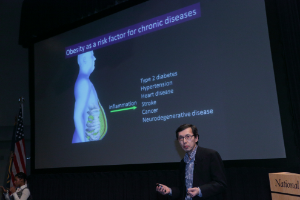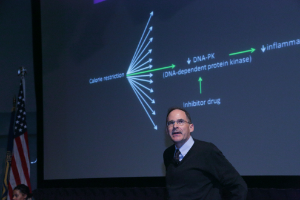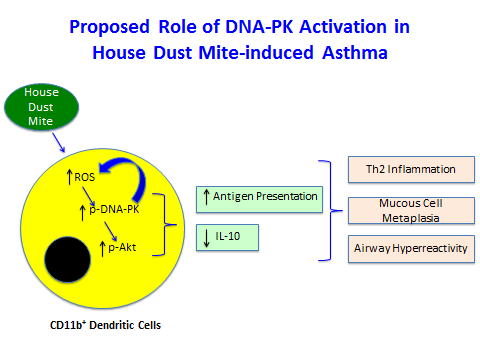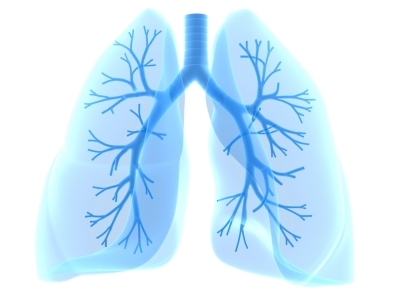Collaboration Identifies Role of DNA-PK in Asthma


Dr. Jay Chung (top) and Dr. Steward Levine (bottom) of the NIH National Heart, Lung, and Blood Institute's (NHLBI) Division of Intramural Research
Second in the Orloff Award recipient series are Drs. Jay Chung and Stewart Levine for their characterization of the role of DNA-dependent protein kinase (DNA-PK) in dendritic cell function in asthma and for the identification of the role of pharmacological inhibition of DNA-PK as a novel treatment approach for asthma.
New Discoveries

DNA-dependent protein kinase is a key enzyme that repairs DNA breaks and also causes severe combined immunodeficiency disease (SCID), but it has not been known to have a role in asthma or in dendritic cell function until now. Drs. Chung and Levine recently published a manuscript in Nature Communications on February 18th reporting the identification of a novel role for DNA-PK in asthma by modulating the antigen presentation function of lung dendritic cells.
This is a significant scientific finding showing that DNA-PK in dendritic cells can be activated by house dust mites (a common cause of allergic asthma) via generation of reactive oxygen species, which then regulated antigen presentation via an Akt-dependent signaling pathway. In addition to this discovery, they were able to show that pharmacological inhibition of DNA-PK could both prevent the development of house dust mite-induced asthma and also treat ongoing asthma. Their manuscript was able to both define a novel mechanism by which DNA-PK regulates Th2-mediated adaptive immunity as well as identifies pharmacological inhibitors of DNA-PK as a potential novel treatment approach for asthma.
Collaboration Match Made in Heaven

The idea for this concept was first conceptualized when Dr. Jay Chung heard a presentation by Dr. Stewart Levine regarding the role of apolipoprotein mimetic peptides for the treatment of asthma. Dr. Chung had worked with DNA-PK inhibitors and thought that their anti-inflammatory properties might also be useful for asthma. The successful collaboration between the Chung and Levine labs is based upon the expertise of the Chung lab regarding DNA-PK biology and the Levine lab regarding adaptive immune responses in asthma.
This scientific achievement illustrates how basic research using murine models of human disease can lead to potential new treatments for patients. It also shows how unique the DIR environment is and how it can facilitate collaborative research to identify new approaches in treating human disease. There is a strong need for new treatments for patients with severe asthma and Drs. Chung and Levine’s findings will be able to provide the concept for the future development of DNA-PK inhibitors that might be delivered to the lungs via an inhalation route, representing a new therapeutic target for the treatment of asthma.
Congratulations again to the Chung and Levine Labs for their wonderful achievement in further advancing the treatment for severe asthma!
Watch Dr. Levine and Dr. Chung discuss the science for which they won this award in this video.
Related Blog Posts
This page was last updated on Wednesday, January 31, 2024

